

Dan Chenok is Executive Director of the IBM Center for The Business of Government. He oversees all of the Center's activities in connecting research to practice to benefit government, and has written and spoken extensively around government technology, cybersecurity, privacy, regulation, budget, acquisition, and Presidential transitions. Mr. Chenok previously led consulting services for Public Sector Technology Strategy, working with IBM government, healthcare, and education clients.
Mr. Chenok serves in numerous industry leadership positions. He is a CIO SAGE and member of the Research Advisory Council with the Partnership for Public Service, Fellow of the National Academy of Public Administration, Member of the Board of Directors for the Senior Executives Association, Member of the Government Accountability Office Polaris Advisory Council for Science and Technology, Member of the American University IT Executive Council, and Mentor with the Global Policy, Diplomacy, and Sustainability Fellowship. Previously, he served as Chair of the Industry Advisory Council (IAC) for the government-led American Council for Technology (ACT), Chair of the Cyber Subcommittee of the DHS Data Privacy and Integrity Advisory Committee, Chair of the NIST-sponsored Federal Information Security and Privacy Advisory Board, and two-time Cybersecurity commission member with the Center for Strategic and International Studies. Mr. Chenok also generally advises public sector leaders on a wide range of management issues. Finally, Mr. Chenok serves as an Adjunct Associate Professor with the LBJ School of Public Affairs at the University of Texas in Austin, teaching at the school's Washington, DC Center.
Before joining IBM, Mr. Chenok was a Senior Vice President for Civilian Operations with Pragmatics, and prior to that was a Vice President for Business Solutions and Offerings with SRA International.
As a career Government executive, Mr. Chenok served as Branch Chief for Information Policy and Technology with the Office of Management and Budget, where he led a staff with oversight of federal information and IT policy, including electronic government, computer security, privacy and IT budgeting. Prior to that, he served as Assistant Branch Chief and Desk Officer for Education, Labor, HHS, and related agencies in OMB's Office of Information and Regulatory Affairs. Mr. Chenok began his government service as an analyst with the Congressional Office of Technology Assessment, and left government service at the end of 2003.
In 2008, Mr. Chenok served on President Barack Obama’s transition team as the Government lead for the Technology, Innovation, and Government Reform group, and as a member of the OMB Agency Review Team.
Mr. Chenok has won numerous honors and awards, including a 2010 Federal 100 winner for his work on the presidential transition, the 2016 Eagle Award for Industry Executive of the Year, and the 2002 Federal CIO Council Azimuth Award for Government Executive of the Year.
Mr. Chenok earned a BA from Columbia University and a Master of Public Policy degree from Harvard's Kennedy School of Government.
| Daniel Chenok | Points |
|---|---|
| Academic | 5 |
| Author | 131 |
| Influencer | 90 |
| Speaker | 0 |
| Entrepreneur | 0 |
| Total | 226 |
Points based upon Thinkers360 patent-pending algorithm.
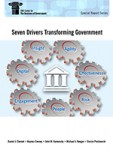 Seven Drivers Transforming Government
Seven Drivers Transforming Government
Tags: Digital Transformation, GovTech
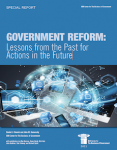 Government Reform: Lessons from the Past for Actions in the Future
Government Reform: Lessons from the Past for Actions in the Future
Tags: GovTech
 Future Shocks Challenge Grant Competition — 2026 Announcement
Future Shocks Challenge Grant Competition — 2026 Announcement
Tags: Cybersecurity, GovTech, Management
 Digital Transformation: A Key to Maintaining U.S. Technological Superiority
Digital Transformation: A Key to Maintaining U.S. Technological Superiority
Tags: Cybersecurity, GovTech, Management
 Why Emergency Management Requires Trust
Why Emergency Management Requires Trust
Tags: Cybersecurity, GovTech, Management
 Improving Program Evaluation in Government Through Responsible AI
Improving Program Evaluation in Government Through Responsible AI
Tags: Cybersecurity, GovTech, Management
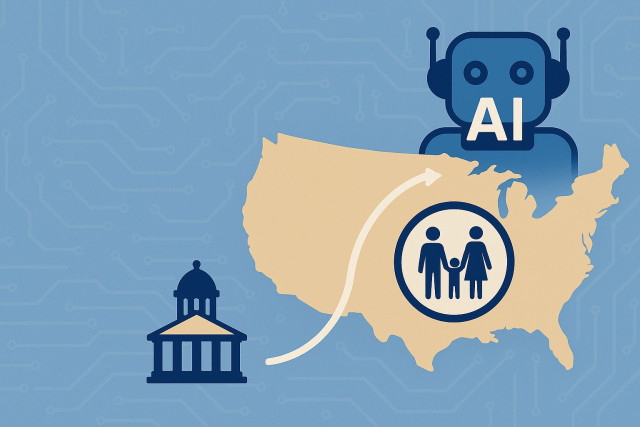 The Transformative Use of Artificial Intelligence for State-Based Child Welfare Programs
The Transformative Use of Artificial Intelligence for State-Based Child Welfare Programs
Tags: Cybersecurity, GovTech, Management
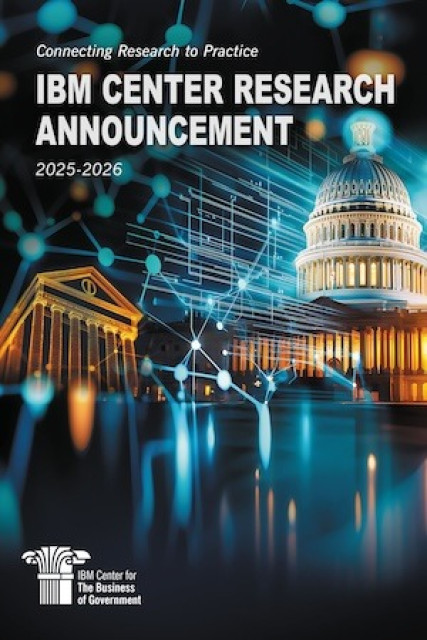 Forthcoming Research Reports
Forthcoming Research Reports
Tags: Cybersecurity, GovTech, Management
 Rethinking Resilience: Empowering Communities for Crisis Preparedness
Rethinking Resilience: Empowering Communities for Crisis Preparedness
Tags: Cybersecurity, GovTech, Management
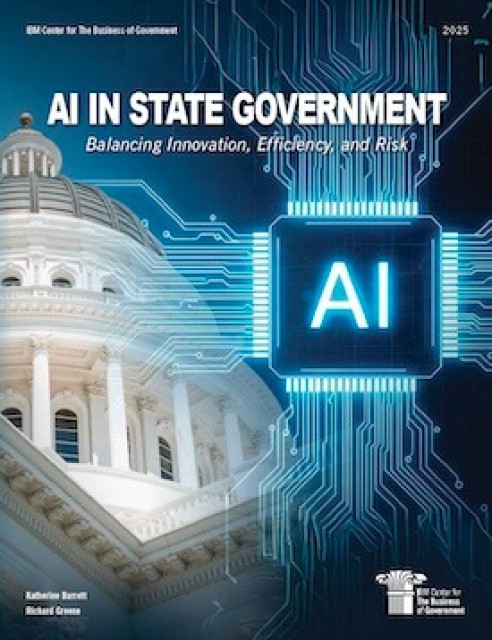 How AI Can Help States Improve Results
How AI Can Help States Improve Results
Tags: Cybersecurity, GovTech, Management
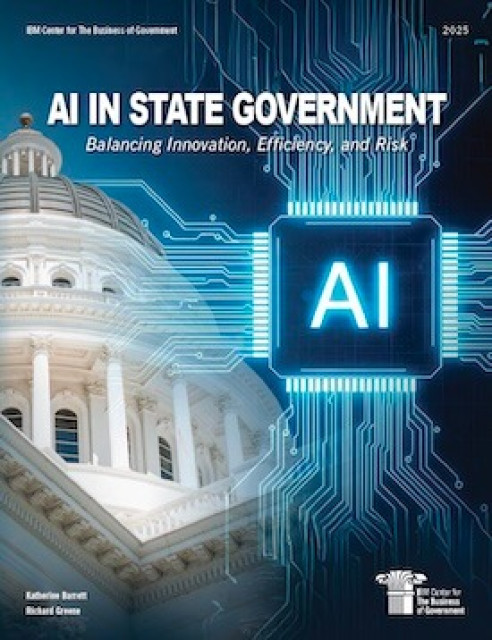 A New Roadmap for AI in State Government: Balancing Innovation, Efficiency, and Risk:
A New Roadmap for AI in State Government: Balancing Innovation, Efficiency, and Risk:
Tags: Cybersecurity, GovTech, Management
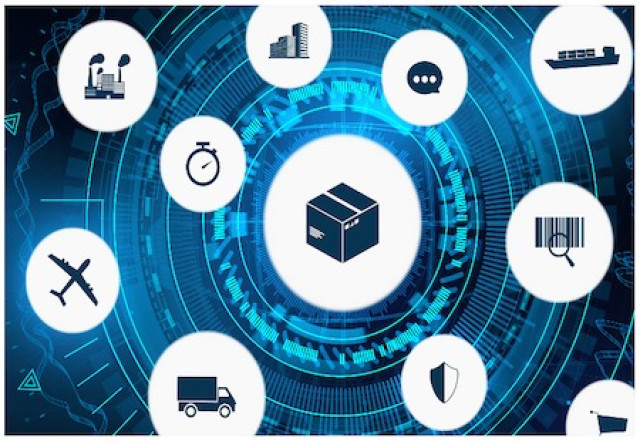 Forging Practical Solutions to Threats Targeting our Digital Infrastructure
Forging Practical Solutions to Threats Targeting our Digital Infrastructure
Tags: Cybersecurity, GovTech, Management
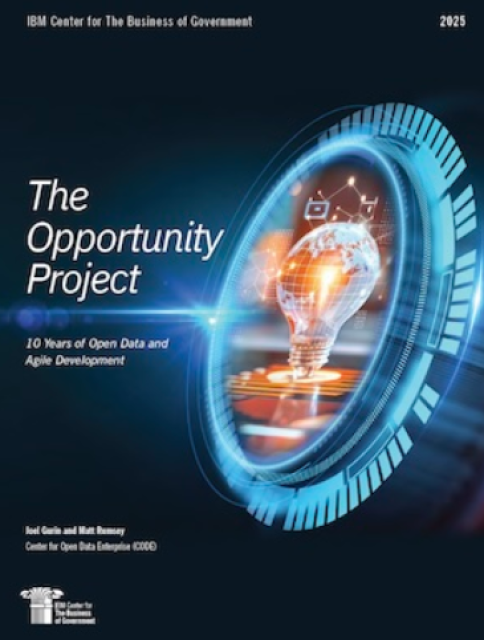 Driving Improved Government Performance Through Open Data and Agile Development
Driving Improved Government Performance Through Open Data and Agile Development
Tags: Cybersecurity, GovTech, Management
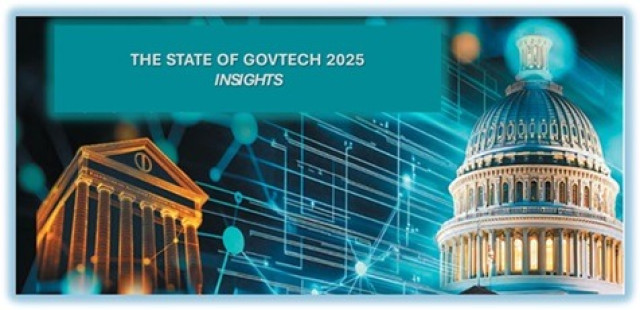 OPM Retirement Services – How Can Digital Modernization Overcome Longstanding Challenges?
OPM Retirement Services – How Can Digital Modernization Overcome Longstanding Challenges?
Tags: Cybersecurity, GovTech, Management
 Accelerating Mission Outcomes with Agentic AI: A Practical Guide for Federal Leaders
Accelerating Mission Outcomes with Agentic AI: A Practical Guide for Federal Leaders
Tags: Cybersecurity, GovTech, Management
 Understanding Customer Experience and Technology Tools to Improve Payment Integrity: Key Insights from an Expert Roundtable
Understanding Customer Experience and Technology Tools to Improve Payment Integrity: Key Insights from an Expert Roundtable
Tags: Cybersecurity, GovTech, Management
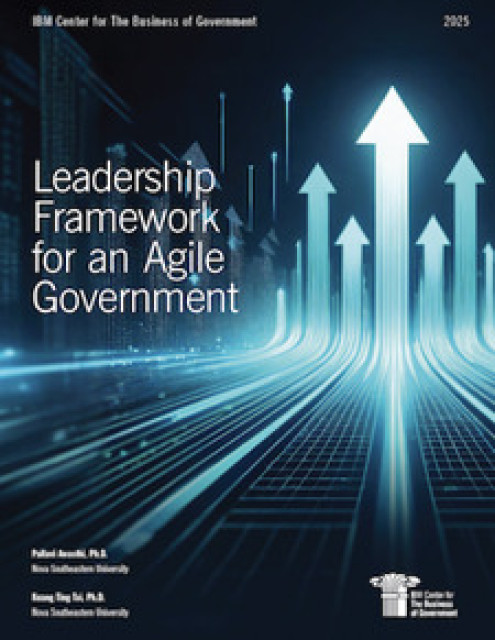 Harnessing Agility in Governance: A Leadership Framework for an Agile Government
Harnessing Agility in Governance: A Leadership Framework for an Agile Government
Tags: Cybersecurity, GovTech, Management
 Six best practices to stop waste, fraud, and abuse
Six best practices to stop waste, fraud, and abuse
Tags: Cybersecurity, GovTech, Management
 Implementing Best Practices for Combating Fraud in Government
Implementing Best Practices for Combating Fraud in Government
Tags: Cybersecurity, GovTech, Management
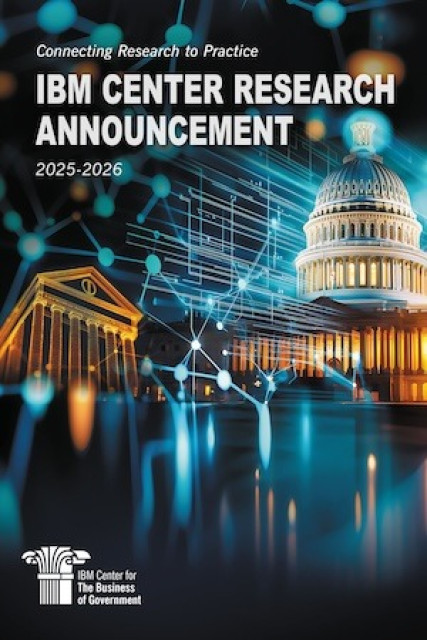 A Renewed IBM Center Research Agenda – Seeking Ideas to Improve Government
A Renewed IBM Center Research Agenda – Seeking Ideas to Improve Government
Tags: Cybersecurity, GovTech, Management
 Navigating the Complexity and Variability of Government Data to Improve Payment Integrity: Key Insights from an Expert Roundtable
Navigating the Complexity and Variability of Government Data to Improve Payment Integrity: Key Insights from an Expert Roundtable
Tags: Cybersecurity, GovTech, Management
 Recommendations for Improving Payment Integrity
Recommendations for Improving Payment Integrity
Tags: Cybersecurity, GovTech, Management
 How Can Government Best Strengthen Natural Resource Resilience
How Can Government Best Strengthen Natural Resource Resilience
Tags: Cybersecurity, GovTech, Management
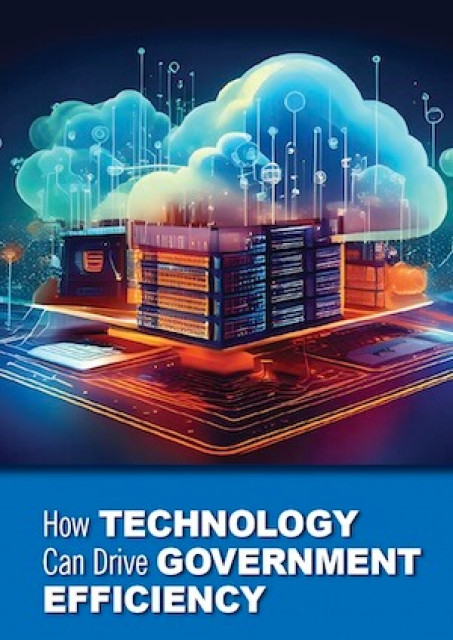 A Renewed Focus on Technology to Modernize Government
A Renewed Focus on Technology to Modernize Government
Tags: Cybersecurity, GovTech, Management
 Case Studies in Resilience: A Future Shocks Challenge Grant Competition
Case Studies in Resilience: A Future Shocks Challenge Grant Competition
Tags: Cybersecurity, GovTech, Management
 Forthcoming Research Reports
Forthcoming Research Reports
Tags: Future of Work, Generative AI, GovTech
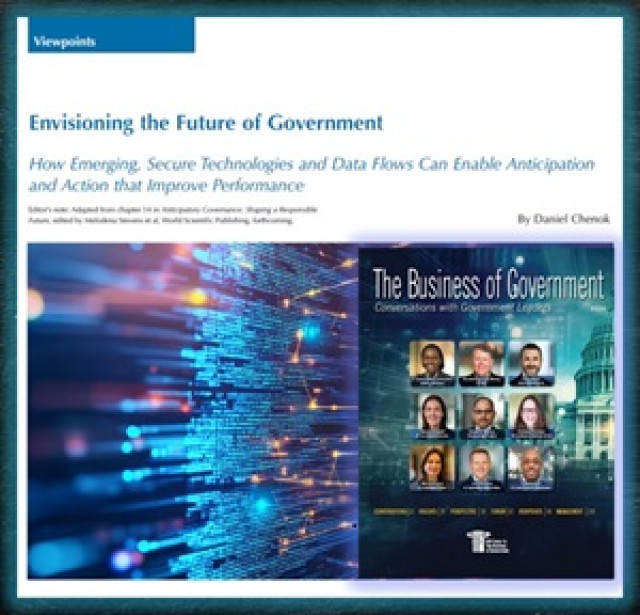 Envisioning the Future of Government
Envisioning the Future of Government
Tags: Cybersecurity, GovTech, Management
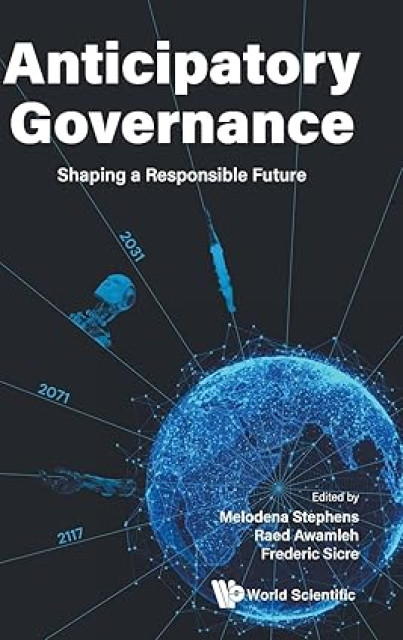 Anticipatory Governance
Anticipatory Governance
Tags: Cybersecurity, GovTech, Management
 Shared services: Getting past the sticking points
Shared services: Getting past the sticking points
Tags: GovTech
 Consolidating federal networks could lead to new security holes
Consolidating federal networks could lead to new security holes
Tags: Cybersecurity, GovTech
 Why tracking data centers is so hard
Why tracking data centers is so hard
Tags: Cloud, GovTech, Data Center
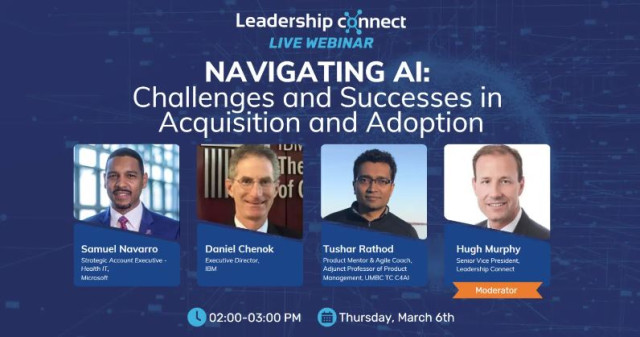 avigating AI: Challenges and Successes in Acquisition and Adoption
avigating AI: Challenges and Successes in Acquisition and Adoption
Tags: Cybersecurity, GovTech, Leadership
Date : September 25, 2020
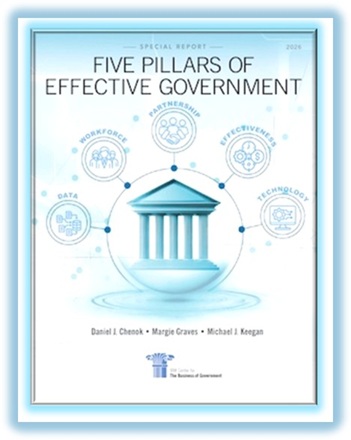 NEW SPECIAL REPORT: Five Pillars of Effective Government: A Framework for Governing in an Age of Complexity
NEW SPECIAL REPORT: Five Pillars of Effective Government: A Framework for Governing in an Age of Complexity
SPECIAL REPORT: Effective government is not built through isolated reforms. It emerges when multiple, interconnected capabilities are strengthened together—intentionally and strategically. Five Pillars of Effective Government offers a practical framework for doing just that.
Report co-authors Margie Graves and Michael J. Keegan
Government today stands at a crossroads.Global change continues to accelerate—through disruptive technologies, increasingly complex cross-national risks, rapid shifts in economic and social conditions, and rising public expectations for fast, trustworthy, and high-quality services. Every day, public agencies must manage challenges that no organization—public or private—can navigate alone, including protecting critical infrastructure from cyberattacks, responding to natural disasters, delivering benefits during emergencies, building resilient communities, and ensuring that essential services reach the public fairly and reliably.
The IBM Center for The Business of Government has spent more than two decades informing leaders about effective practices for meeting these challenges, by grounding public-sector innovation in evidence, research, and real-world experience.
Today, we are pleased to announce the release of a groundbreaking special report, Five Pillars of Effective Government, which continues advancing this work by identifying five areas where meaningful progress can have the greatest impact—areas where the right ideas, the right tools, and the right leadership can strengthen the capacity of government to serve the nation.
This report is built around five central pillars:
Individually, each pillar addresses a fundamental dimension of good governance. Together, they support a comprehensive strategic framework for delivering on what the public expects—and deserves—from its institutions: a government that works, responds, and earns trust through performance.
What the Five Pillars Reveal
No single organization can solve the hardest problems alone. Whether delivering vaccines, planning for climate risks, strengthening supply chains, or modernizing digital services, success increasingly depends on partnerships—across agencies, across levels of government, and across sectors.
The report shows how well-designed partnerships:
When partnerships build on trust, shared data, and mutual accountability, government’s impact expands dramatically.
The public expects government to invest resources wisely and deliver value.Yet agencies face enormous pressures: rising costs, aging systems, administrative burdens, and the constant need to do more with less.
This pillar highlights practical ways to improve performance—such as:
Financial responsibility and operational excellence reinforce one another.When government operates effectively, public trust grows.
Technology continues to reshape how government works.From artificial intelligence to cloud computing to digital identity systems, emerging technologies offer extraordinary opportunities to improve services, strengthen cybersecurity, and support public employees.
This pillar shows how technology enhances:
But this pillar also emphasizes a critical insight: technology succeeds only when used thoughtfully, ethically, and with people—citizens and public servants—placed at the center.
Sound decisions depend on quality and timely data.Government agencies now generate and manage enormous amounts of information, and when used effectively, data can transform policymaking, program management and evaluation, and public engagement.
This pillar explains how:
Data-driven government gives public leaders the insight they need to make choices that improve real lives.
Every public service—from emergency response to benefits processing—is ultimately delivered by people.Yet the government workforce faces increasing strain: retirements are rising, hiring is slow and complex, skills gaps are widening, and employee engagement has been shaken by years of disruption.
This pillar outlines a path forward by:
In short, better government depends on better supporting the people who make it work.
A Strategic Framework for Integration
While each pillar offers valuable insights individually, the report's greatest contribution may lie in how it demonstrates their interconnections. Multi-sector partnerships depend on data-sharing infrastructure and workforce capabilities. Financial effectiveness requires both technological tools and skilled analysts. Technology implementation succeeds only when supported by appropriate training, change management, and performance measurement. Data-driven decision-making enables leaders to identify partnership opportunities and optimize resource allocation. And workforce development ensures that agencies can leverage all other capabilities to maximum effect.
This integrated perspective reflects the report's underlying philosophy: government transformation requires comprehensive strategies that address people, processes, technology, and governance simultaneously. Isolated reforms, no matter how well-designed, cannot overcome systemic barriers or deliver sustained improvement. Only by pursuing coordinated action across all five pillars can agencies build the comprehensive capabilities required for 21st-century governance.
A Call to Leadership
Ultimately, Five Pillars of Effective Government represents both a comprehensive analysis and an urgent call to action for public sector leaders. The report makes clear that the challenges facing government are substantial, but they are not insurmountable. With the right strategic frameworks, evidence-based approaches, sustained commitment, and leadership vision, agencies can transform their operations to deliver better outcomes at lower costs while strengthening public trust.
The authors—each bringing extensive government and consulting experience alongside deep expertise in technology, data, management, and leadership—offer a hopeful message: government can deliver exceptional value to the public when equipped with appropriate tools, practices, and capabilities. The path forward requires dedication, investment, and patience, but the destination—a more effective, responsive, and trusted public sector—is within reach.
Conclusion
As government leaders navigate an increasingly complex landscape, Five Pillars of Effective Government provides an invaluable resource for charting the course forward. Whether you are a senior executive seeking to drive organizational transformation, a program manager working to improve operations, a technology leader implementing modernization initiatives, a data professional building analytics capability, or a human capital specialist strengthening workforce capacity, this report offers insights, frameworks, and practical guidance to inform your efforts.
The IBM Center for The Business of Government invites government executives, practitioners, researchers, policymakers, and all those committed to public sector excellence to engage with this framework, adapt its insights to their own contexts, and join in building a government worthy of the challenges ahead and the citizens it serves.
Tags: GovTech
 Accelerating Mission Outcomes with Agentic AI: A Practical Guide for Federal Leaders
Accelerating Mission Outcomes with Agentic AI: A Practical Guide for Federal Leaders
Agentic AI is rapidly reshaping the way organizations operate, promising a new era of autonomy, adaptability, and mission impact. But what exactly is Agentic AI, and how can federal agencies harness its power to overcome longstanding challenges and deliver real results?
Contributors for this blog are Bridget Deary, Partner, IBM Consulting Federal, Mark Fisk, Partner, IBM Consulting Federal, Chuck Royal, Associate Partner, IBM Consulting Federal, and Tony Vachino, Associate Partner, IBM Consulting Federal.
Accelerating Mission Outcomes with Agentic AI: A Practical Guide for Federal Leaders
Agentic AI is rapidly reshaping the way organizations operate, promising a new era of autonomy, adaptability, and mission impact. But what exactly is Agentic AI, and how can federal agencies harness its power to overcome longstanding challenges and deliver real results?
What Is Agentic AI? The Next Leap in Autonomy
Agentic AI is more than just another buzzword in artificial intelligence. Unlike traditional AI, which follows predefined rules or generates content on command, Agentic AI systems act as independent agents: they perceive their environment, set goals, make decisions, and take actions—all with minimal human intervention. Think of Agentic AI as a trusted digital teammate that not only understands your objectives but proactively finds the best path to achieve them, learns from every interaction, and adapts in real time to changing circumstances.
These systems are built from networks of AI agents, each specializing in specific tasks, collaborating to solve complex, multi-step problems. The result? Workflows that are more efficient, flexible, and resilient—freeing up human talent for higher-value missions.
Why Federal Agencies Need Agentic AI Now
Federal agencies, are under unprecedented pressure to modernize, innovate, and do more with less. Executive Orders and agency mandates now require outcome-focused innovation, rapid adoption of AI, and measurable impact on mission delivery. Agentic AI is uniquely positioned to meet these demands by:
Four Core Challenges on the Path to Agentic AI
While the vision is clear, the journey is not without obstacles. Federal agencies face four main hurdles:
How Agentic AI Overcomes These Barriers
Agentic AI frameworks are designed to address these challenges head-on:
Real-World Impact: Agentic AI in Action
Agentic AI is already delivering value across government and industry:
Getting Started: A Practical Roadmap
Federal leaders looking to unlock the potential of Agentic AI should focus on:
The Bottom Line
Agentic AI is not just the next step in automation—it’s a fundamental shift in how agencies can achieve their missions. By enabling systems to act, learn, and adapt, Agentic AI empowers federal leaders to break through long-standing barriers, deliver measurable outcomes, and build a future-ready government.
This article first appeared here: Accelerating Mission Outcomes with Agentic AI: A Practical Guide for Federal Leaders | IBM Center for The Business of Government.
Tags: GovTech, Agentic AI
 Forthcoming Research Reports
Forthcoming Research Reports
We are pleased to announce our latest round of awards for new reports on key public sector challenges, which respond to priorities identified in the Center's research agenda. Our content is intended to stimulate and accelerate the production of practical research that benefits public sector leaders and managers.
We expect the following reports to be published starting in late 2025. Short summaries of each report follow:
Accelerating Digital Transformation in Public Organizations Through Public Procurement by Ana Maria Dimand, Florida State University; Petra Ferk, New University, Slovenia; Jane Lynch, Centre of Public Value Procurement, Cardiff Business School, Cardiff University, UK; Andrea Patrucco, College of Business Florida International University; Esmee Peters, University of Twente, Enschede, Netherlands.
This report will investigate the impact of emerging technologies on public procurement processes across various countries. It will analyze how different nations implement these technologies, identify challenges in adoption, and assess their effects on efficiency, transparency, and cost-effectiveness. The report will provide actionable insights for public sector leaders in the U.S. and globally as well as a comparative analysis of technology implementation, best practices, common challenges, and policy recommendations.
Combining AI and Metadata Analytics for Enhanced Government Financial Oversight by Dr Irakli Petriashvili, Rutgers School of Public Administration’s Transparency and Governance Center
This report will investigate how AI and metadata analytics can enhance financial auditing processes at the federal level to detect fraud. By evaluating current audit practices of the GAO and agencies, analyzing public spending metadata, and applying machine learning models, the study will identify inefficiencies in traditional approaches and propose innovative solutions. Based on real-world datasets, the research aims to leverage government spending data in developing recommended strategies to increase financial audit capabilities. The findings aim to improve early fraud detection and enhance public sector performance and accountability.
Harnessing Generative AI: Boston’s Institutional Setup and Approach to Data-Driven Governance and Civic Engagement by Juncheng Yang, Data-Smart City Solutions, Harvard Bloomberg Center for Cities.
This report will explore Boston’s integration of Generative AI (GenAI) in urban governance, focusing on its pilot adoption and institutional foundation. By analyzing Boston’s position as the first U.S. city to release GenAI guidelines and its history of technological innovation, the study examines the institutional drivers and challenges in launching and governing recent GenAI initiatives. The investigation highlights GenAI’s impacts on data-driven decision-making, transparency, accountability, and inclusive civic engagement. The final report will offer evidence-based strategies, best practices, and actionable, scalable recommendations for adoption by local, State and Federal government leaders.
Immersive Workspaces: Reimagining the Future of Governmental Work for Innovation, Efficiency, and Wellbeing by Alexander Richter, Victoria University of Wellington and Shahper Richter, University of Auckland.
This report will examine and illustrate how immersive workspaces, leveraging technologies such as AI, VR, AR, and digital twins, can transform government workforce practices. The report will analyze established methods based on discussion with government officials in several countries, and will apply future-thinking approaches to explore the potential for workforce transformation using these technologies. The resulting report will combine forward-thinking scenarios of the future of government with actionable recommendations to help government agencies build adaptive & resilient teams, drive efficiency, and secure mission alignment.
Improving Federal Government Performance by Dr Howard Risher and James Perry, Indiana University.
This report will develop a practical strategy for improving agency performance, based on ‘hands-on’ involvement in the management of organizations across agencies and organizational levels with experienced officials and experts in private and public sector management. The report will highlight proven national and international ‘best practices’ that will be valuable to government leaders.
Tags: GovTech, Future of Work, Generative AI
 Future Shocks Challenge Grant Competition — 2026 Announcement
Future Shocks Challenge Grant Competition — 2026 Announcement Digital Transformation: A Key to Maintaining U.S. Technological Superiority
Digital Transformation: A Key to Maintaining U.S. Technological Superiority Why Emergency Management Requires Trust
Why Emergency Management Requires Trust